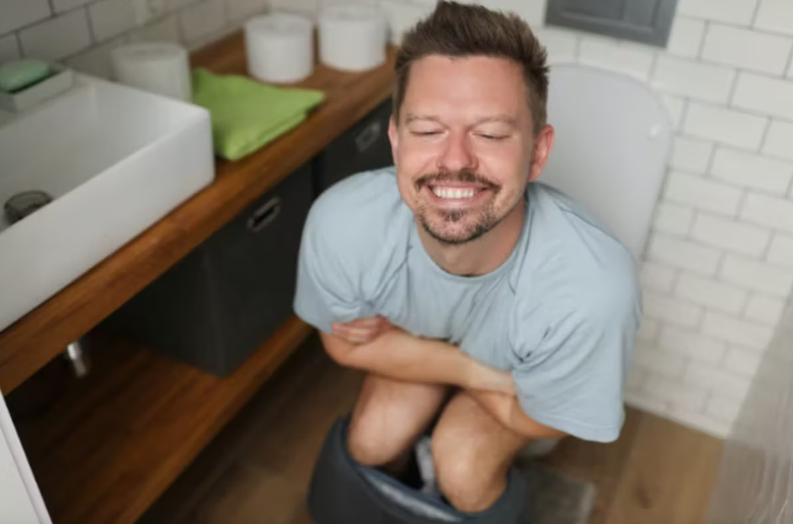It’s a painful transition to watch your parents grow old and need help being taken care of. For many adult children, the responsibility falls on them to be caretaker. Often, it’s an overwhelming decision.
The question about seeking additional help caring for aging parents from nursing homes or assisted living homes can be conflicting. It can also bring lots of guilt.
To help support others going through this difficult transition, a group of adult children with aging parents opened up about how they dealt with the guilt of putting their parents in nursing homes. They shared their personal experiences and how they processed the raw emotions of deciding what was best for their parents.
These are 11 real stories of how people overcame guilt about putting their aging parents in nursing homes.
“Well, my Dad wasn’t safe in his home on his own. Wasn’t eating well. Threw trash and soiled underwear wherever. Had a biblical rat infestation in his hoarded Y2K food supply. Had said rats chew through his water pump’s power supply so he lost running water. Now he’s fed well, is taking his meds, is in a clean environment, has transportation to medical appointments, and has people all around him for when he has falls. So all that guilt is miniscule compared to his improved safety. It may not be as dire for your Dad, but it sounds like he’d be safer too. It’s rough making the argument for it and following through though. Wish you the best.” – Ariwara_no_Narihira
“Totally this. If they escape you just once, guilt is gone. Where the guilt comes in is if you put them there and forget them. Visit often, have meaningful interactions (if only on your side) try to see the glimpses of their old self, make them smile every single time. Cherish every moment, even knowing they are a fraction of themselves as one day it won’t be an option. Speaking from someone that has been there.” – eeekkk9999
“Dealing with this right now with my grandmother. I’m also a caregiver for my disabled mom and brother. My mom and brother have accepted their limitations and help me rather than hinder me. My grandmother on the other hand is in that phase of life where she thinks she is firing on all cylinders but isn’t and gets mad when I try to get her to a place that can ensure her safety. What helped me a lot was the notion that she would get mad me no matter what. I’d rather have her mad at me for putting her in a facility designed to care for people like her, than her being mad at me while being a hazard to her own health (while driving me crazy in the process.) You can’t avoid the hurt. The anger, the frustration, the sadness….it will happen regardless. So might as well choose what’s best. You’d want someone to be brave enough to deal with you in your twilight years as well.” – 331845739494
“As far as the guilt, the situation was beyond what I could do for her. I was so burnt out from being on high alert that a social worker told me flat out something HAD to change or I was likely to be in the hospital or dead within the next four to six weeks. I was severely sleep deprived and my patience was on fumes. Now I can be the caring daughter instead of the inadequate caregiver. We still have our moments, however mom is doing much better where she is in spite of some declines in her health.” – DTW_Tumbleweed
“It’s hard but so is losing your sanity. You and sis are not trained or medically qualified for this level of care management. I felt guilt putting mom in a home but she absolutely could not be left alone for one hour because she would get so crazy.” – Vegetable-Fix-4702
“I agonized over this for years. One day my mother found some of her photos chewed up by mice. We called Orkin, they said ‘you should vacate for 2 weeks.’ A nearby Assisted Living place was offering a one month “tryout” so I had her try it. She made some friends there, and after 2 weeks the thought of going back to a house she had to clean, was too much. She said it felt like living in her dorm again. But ‘temporarily!’ Yes, yes, temporarily. After a few years, it was clear she’d have to sell her house (those places are expensive) so I moved her to one close to my house; after that she kind of forgot about her house so I took the liberty …” – benri
“My Dad is in a home and he hates it. He yells at Mum and myself every time we visit. Tries to guilt trip us. But it’s the best thing for him. Mum is a short small woman, Dad is/was over six feet and he was struggling getting himself to the bathroom on his walker. Kept falling over and needing to call the ambulance to get back up. I live two hours away. It’s not ideal, but it’s physically the best place for him. He refused to have carers do anything but the basics, Mum never got a break.” – ThehillsarealiveRia
“For your own peace of mind, I think a big part of it is semantics. Instead of saying that ‘I put my dad in a nursing home,’ say ‘I moved my dad to a place that can better care for his needs.’ The words ‘moved’ vs ‘put’ makes a big difference in perspective.” – andysandygirl
“Guilt is the nemesis of caregivers. Guilt is our compass that tells us we have done something wrong. Placing your father in a care residence where he can get the help, support and healthcare he needs is not wrong. Yes, it does make you ‘feel guilty’, as if you have failed him, perhaps? I work with many caregivers who get to this point with a parent. The real struggle is their own emotions. Visit him often, be there a lot initially to help with the adjustment phase. I hear you say that both you and your sister are ‘running yourself ragged…’ this is not good for your health. His being stubborn is often just needing to hold on to his independence. Showing respect for that and finding a way to sell the cars, the house making it his decision. This is a very hard thing to do. It can wrench at your heart. As long as you don’t abandon him, you are doing what is needed for all.” – lifelovelegacy
“I wish we could drop the stigma associated with guilt and the use of assisted living, nursing homes, rehabs, etc. Some of these places are horrible. But that’s the way it is with everything. Some are great. Personally, I felt relief when my dad entered assisted living. He is surrounded by professionals. There are systems in place for the situations he encounters. There are more people watching him and they have more experience than my family does. But, most of all, he has a much better social life because he has friends he sees regularly. Social interaction is key.” – inflewants
“You don’t, you just learn to tolerate it. Serve God, yourself, and then others in that order. If you are doing your best, that’s all you can do. Guilt is a reasonable emotion. So is relief. Give yourself grace.” – cutekthx































